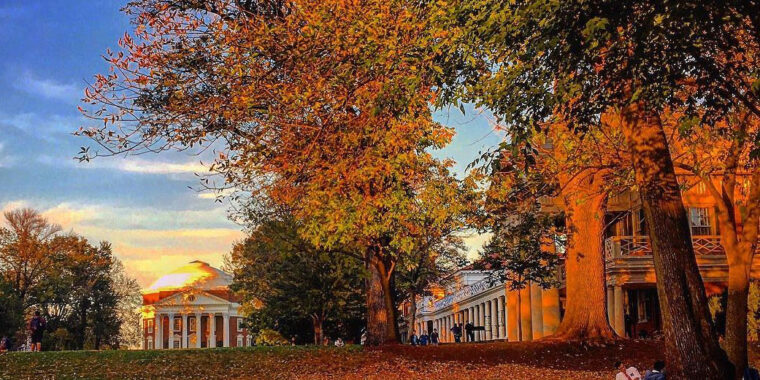
The fate of legacy admissions is soon to lie in the hands of Governor Glenn Youngkin after legislation was seamlessly passed through both Virginia’s House of Delegates and State Senate at the end of last month.
House Bill 48, introduced by Delegate Dan Helmer representing Fairfax County (D, HD-10), calls for banning legacy and donor status admissions by any public institution of higher education in the Commonwealth. State Senator Schuyler VanValkenburg, representing Henrico County (D, SD-16), sponsored the bill on the Senate floor. Both bills passed in the two chambers unanimously.
Much of the conversation over legacy admissions and other factors that colleges and universities consider in the admissions process began due to the U.S. Supreme Court’s decision to prohibit affirmative action. With the race-conscious admissions policies of Harvard University and the University of North Carolina being deemed unconstitutional, questions have arisen about additional policies that may also grant special treatment to applicants.
Various elected officials have voiced support for ending legacy admissions.
“If there’s special privilege … that shouldn’t afford someone a cut in line because of the family’s donor status, or legacy status if your parents went there,” state Sen. Jeremy McPike (D, SD-29) said to VPM News.
The legislation is also likely to have the backing of Attorney General Jason Miyares (R), who expressed his disfavor towards legacy admissions back in August. Sharing sentiments similar to McPike’s, he further emphasized the value of merit in an application.
“Nobody should miss out on a slot at a university just because the person they are competing with, father or grandfather, went to that same university,” Miyares said.
Instead, the Attorney General expressed the importance of merit in the admissions process.
“They should be looked at as an individual,” Miyares said. “The totality of their entire human experience. Also, what they, themselves, have achieved.”
The importance and value of merit are driving current discussions in academic spaces and at the political table. In the aftermath of the affirmative action Supreme Court decision, Only a few Virginia colleges and universities still provide applicants with the ability to indicate if they are legacy applicants.
Two of these universities are the University of Virginia and the College of William and Mary.
William and Mary have yet to reform their admissions policies; However, their inaction is not the most surprising of outcomes, as data from the College has revealed that “accepted applicants who were legacies were more than twice as likely to enroll at the school as other accepted applicants were.”
However, in August, the University of Virginia adjusted its admissions policy so as not to be as direct with inquiries of legacy. The self-disclosed check box on the application was replaced with an optional question, allowing applicants to write about a “personal or historic connection” with the university. President Jim Ryan and Provost Ian Baucom expressed that the addition of the question was to provide a space for individuals to disclose any relation to the University, whether it be through alumni-related relationships, relationship to faculty/staff, or being a descendant of ancestors who labored at the University.
Starting in this past 2023 admissions cycle, Virginia Tech completely wiped away the consideration of legacy status in admissions, taking a step further than its Virginia rival to ensure admissions in higher education are rewarded based on individual achievement and merit. According to the university, around 12% of applicants are alumni-related.
States nationwide are seeing a split between colleges and universities that choose to eliminate the consideration of legacy in admissions and those that still favor the admissions factor. According to the Washington Post, American University, Georgetown University, George Washington University, and Howard University consider legacy in their admissions process.
However, a bit further north, Johns Hopkins University, the University of Maryland Baltimore County, and Towson University do not consider this factor in their admissions decisions.
Virginia is following in the footsteps of Colorado, where the consideration of legacy in the admissions process has been prohibited in public universities. Connecticut and New York are also following suit, with similar legislation being proposed at the state level.
However, the additional prohibition of “donor status” as a factor in the admissions process may set this legislation apart from similar proposed state bills nationwide. If successfully passed in Virginia, donations from wealthy families would no longer carry the weight of expected admission.
Once at his desk, Governor Glenn Youngkin is expected to sign off on the legislation.
“The governor will review any legislation that comes to his desk, but believes admission to Virginia’s universities and colleges should be based on merit,” Christian Martinez, Press Secretary to Governor Glenn Youngkin, said.
If signed, the effects of the legislation would begin on July 1, 2024, for the 2025 college admissions cycle.


Excellent job!